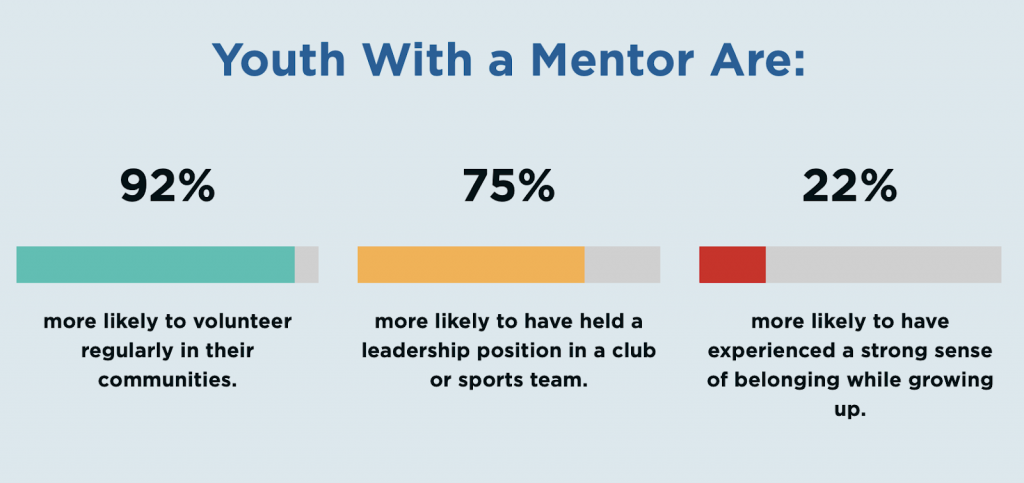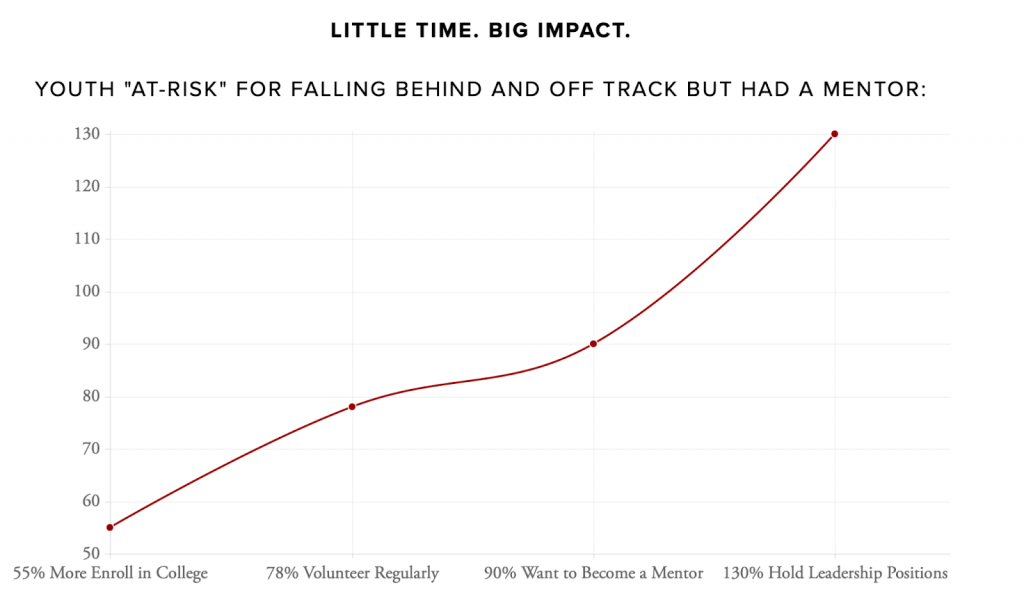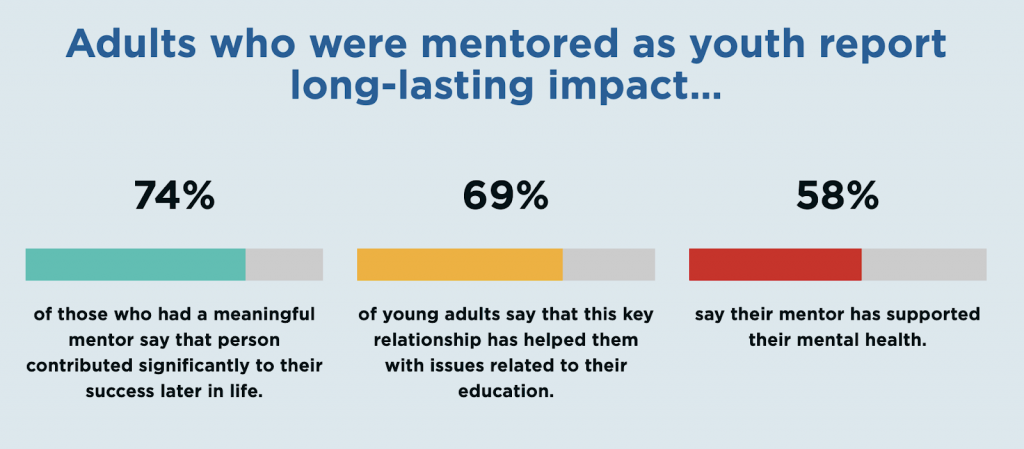
As young as they are, students need proper guidance and utmost support. They get these not only from their parents but also from reliable mentors. These mentors can help them succeed in their personal, academic, and professional lives.
However, here’s the catch: About one in three youths grow up without mentors outside their families. They will miss the opportunity to be taught and developed to their fullest potential. In fact, the United States alone experiences an alarming mentoring gap.
But as a student, why is it essential to seek mentorship? How can mentors help you succeed in your academic endeavors and professional pursuits? This blog tackles the role of mentorship in student success. Learn why you should get a mentor to succeed in school and the workplace, as some business experts would reinforce.
The Critical Role of Mentors in Students’ Lives
The role of mentorship in students’ lives is critical. Mentors can significantly impact their academic and professional lives in more ways than one. They can guide and lead them to success, ultimately contributing to the quality of life they deserve.
However, there is more to mentorship than you might think. At its core, mentors assure students that they have someone who cares for them and that they aren’t alone. These mentors make them feel that they truly matter not only as a student but as a person.
Research shows that mentorship positively affects young individuals’ personal, academic, and professional lives. Mentors contribute to their personal growth and development as well as offer them social and economic opportunities. The facts and figures below paint a clear picture of the role of mentorship in students:

However, mentors don’t necessarily have to be your teachers or professors. They can be anyone with credentials by showcasing their knowledge and skills as well as experience and expertise. They can be someone whom you can trust and someone who’s willing to help you succeed.
As a student, here’s how your mentor can contribute to your personal, academic, and professional success:
1. They aid in knowledge acquisition
Obviously, mentorship happens within the four walls of your classroom. You can instantly have mentors from your actual teachers or professors. Some of the best ones make learning much simpler, clearer, and easier for you. They can help you acquire the necessary knowledge and become confident in any interviews or discourse.
Adam Tishman, Co-Founder at Helix Sleep, recommends building good relationships with quality teachers. According to Tishman, “They don’t only teach you the lessons you need to know for your chosen field. But more than anything, they’re like your second parents in school who will always have your best interests in mind.”
2. They promote skills development
Seeking mentorship can help you possess a valuable skill set. Not only do your mentors enhance your knowledge, but they also improve your skills.
Mentors prepare you to develop and acquire the top skills employers look for. Think of soft skills like communication, interpersonal, and leadership skills, as well as hard skills, such as data analysis, project management, and cybersecurity.
Kathryn MacDonell, CEO at Trilby Misso Lawyers, suggests joining training programs and learning opportunities. MacDonell explains, “These are the best avenues for skills development. They offer the best mentors out there who have the experience and expertise in your chosen field. They can help you develop and acquire the skill sets necessary to thrive in school and the workplace once you graduate.”
3. They provide personal support
Mentorship goes beyond knowledge acquisition and skills development. Your mentors can also offer the personal guidance and support you need in your studies. For example, they can help identify and prevent burnout amid the tons of quizzes, assignments, and projects. That way, you won’t develop underlying stress, depression, and anxiety.
Rodger Desai, CEO of Prove, highlights the value of mentorship for personal support and professional growth. He cites the outcomes of how mentors help youths at risk:
- Enrolling in college (55%)
- Volunteering regularly (78%)
- Wanting to become a mentor (90%)
- Holding leadership roles (130%).
Desai caps by saying, “That’s the mentoring power—bringing out the best in students and making the most of their potential!”

4. They help you get financial support
It’s easy to see students fail in education due to the lack of financial support. Some struggle to focus on their studies, while others have to quit school altogether. That’s where mentorship comes in.
Mentors don’t necessarily provide financial assistance, but they can help find financial aid available for you. Mentors who offer time, money, and effort can make a difference in students’ lives.
5. They pave the way for networking
There’s no denying the importance of networking in college. As a student, you have to connect with the right people and start building your network. What better way to achieve these goals than to work with a handful of mentors? They can provide you with networking opportunities, no matter how young you are!
Learn from Sergey Taver, Marketing Manager at Precision Watches. He has seen how mentorship programs can help establish your connections, whether at school or in the workplace: “Mentors can be instrumental in putting you in the right circle and opening the doorway for plenty of opportunities.”
6. They offer career guidance
Mentorship doesn’t only focus on knowledge and skills enhancements; it also delves into career development for students. Mentors can teach you how to begin your career after graduation. They can help you prepare for job applications, ace panel interviews, and grab career opportunities. According to a recent survey, respondents indicated that mentorship significantly impacts their confidence and job readiness.
Roman Zrazhevskiy, Founder & CEO at MIRA Safety, values mentorship for career guidance. “Nothing is more fulfilling and rewarding for mentors than to see the students achieve their dreams and live the lives they envision.”
7. They help you achieve academic success
Mentorship programs usually revolve around students being taught in school. Sure, mentors offer personal support and professional growth. However, their primary goal is to help these students achieve academic success. So, they help them with their studies, whether doing homework, acing exams, submitting projects, or even graduating on time.
You don’t just need tutors to help you learn and understand your lessons. You actually need mentors who can continue to inspire you and motivate you to succeed. Ultimately, you’ll be surprised at how they can help you graduate with flying colors.
8. They give life’s expert advice
Did you know that mentors are mostly good at giving pieces of advice? Yes, they go beyond teaching lessons, honing skills, offering personal support, and providing career guidance. They will also be there for you during ups and downs. They give sound advice, help you get up, and even celebrate your life’s milestones. This mentorship even has a lasting impact in the lives of people. The proof is in the numbers:

Albert Kim, VP of Talent at Checkr, underscores the importance of mentorship for life support. He loves how mentors leave a mark in their students’ lives.
Kim explains, “There’s one special thing about mentors—they are like life coaches who can give expert advice. They don’t only help students achieve academic success and professional growth; they also help them live a quality life.”
How To Find the Right Mentorship Program
A wide range of programs are available for students; However, they vary from one type to another. So, you have to select the one best suited for your personal, academic, and professional goals and needs. Ultimately, choosing the right mentors can bring out the best in you!
The heart-warming words from a mentored student speak volumes. They show appreciation and express gratitude to mentors for making a difference in his life: “[Having] positive role models in the community, particularly role models who were teachers, has helped me to get where I am today. I wouldn’t be pursuing a teaching career had I not had had mentoring experiences growing up.”
How do you then find the right mentorship program? Let’s cut to the chase—follow the crucial steps below:
- Set your personal goals and needs. Of course, these vary from one student to another. Are you looking to graduate with flying colors, ace the licensure exam, build your professional network, or prepare yourself for the real world?
- Look for available mentorship programs. Educational institutions, professional agencies, non-profit organizations, and even online platforms offer a handful of mentorship opportunities. But of course, you must do your homework!
- Assess your fit and pick the right program. It takes knowing yourself and aligning your choice with your academic goals and needs. Ask this crucial question: Will this mentorship program bring out the best in me as a student?
- Pick the mentor best suited for you. If this is an informal mentorship, opt for a mentor who’s reliable and you are comfortable working with. For a formal mentorship program, go for one with credentials and the sincerity to help you. In the end, your success lies in the hands of your chosen mentor!
- Make the most of your mentorship program. There’s no better way than to attend the session or make time with your mentors regularly. While at it, learn as much as you can from these mentors. Remember, consistency is key to growth and success!
- Build good relationships with your mentors. Your academic and professional success lies in their supportive hands. As such, be willing to engage and learn from these mentors. In the end, let them wear the stole of gratitude for being instrumental in your success!
Wrapping Up
The role of mentorship significantly impacts students’ lives. For one, the right mentors can help you enhance your knowledge and develop your skills. They can also offer personal support and advice as well as help you seek financial aid. Lastly, they can provide you with networking opportunities and career guidance.
Ultimately, mentors can help you succeed in your academic endeavor, professional pursuit, and personal life in general!








